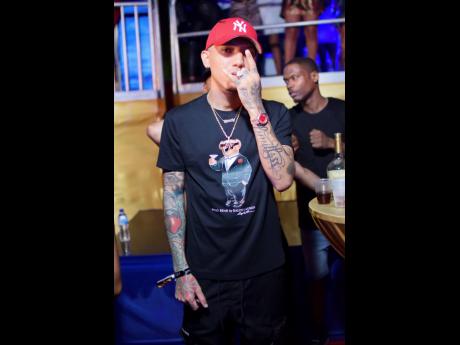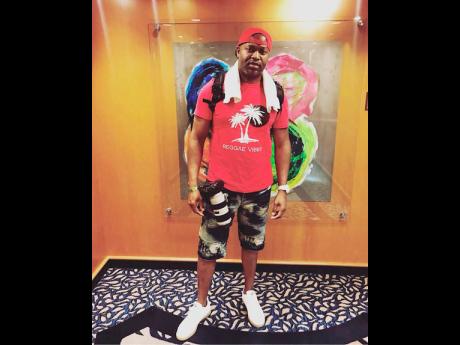From cassettes to online - Industry professionals weigh in on the importance of mixtape DJs
Music producer and one of the founding members of Reggae Vibes Radio, Marlon Folkes, recently collaborated with presenter Wayne Hall, of The Wayne Hall Show in Atlanta, to host a discussion on the importance of a mixtape DJ in the current era of the music business.
According to Folkes, mixtapes and the disc jockeys who create compilations still have the primary function to feed the public with “an [artfully] curated mix of songs”.
“This can take on the form of old classics, introducing new music or focus on the many moods of music, especially in relation to the reggae and dancehall genres,” the producer opined.
With the advent of technology, access to music and platforms to share projects have increased. The number of disc jockeys creating mixtapes has also seen a rise over the past five years.
“This is a far contrast from my own experience as a deejay in the early ‘90s when I would make a mixtape of the latest music running Jamaica at the time, but had to wait for someone going back to the USA to send the mixtape on a cassette,” Folkes said in an interview with The Gleaner, following the virtual discussion.
He says mixtapes and playlists do well on digital streaming platforms. However, mixtapes get better traction on YouTube, while playlists do better on Spotify.
‘Explore the format’
Folkes believes more established recording artistes from the Jamaican genres should utilise the influence of disc jockeys by “exploiting the mixtape format”, more so in a time where live performances are limited.
He said, “It has been done before, but not often enough. It could be a case where the entertainers do not value the mixtape platform as they should, or they would rather stick with more traditional platforms such as iTunes distribution and music videos.”
Popcaan’s Fixtape, released last August, was produced with the concept of a mixtape in mind. In fact, it was a sequel to a street classic YIY Change Mixtape, done with Chromatic Sound more than five years ago. On the international landscape, public figures like DJ Drama and Young Jeezy turned into certified street legends with mixtapes released in the early 2000s, and most recently popular Atlanta DJ and producer Metro Boomin has collaborated with rapper 21 Savage on numerous mixtape projects.
Chromatic Sound’s leadman, Warren ‘Creep’ Lee, said mixtape collaborations between recording artistes and disc jockeys are more worthwhile “when it happens organically”.
“It makes more sense when both or all parties involved have a relationship, especially from early stages of their careers,” Creep told The Gleaner. “It does help to expand the fan bases, but the way Popcaan and I worked on the Fixtape, it wasn’t much of a business move because it was something that we were doing from we were both starting out in the music and entertainment industry. It is our third collaborative mix together.”
The disc jockey shared that separate and apart from the collaboration with the popular dancehall entertainer, producing mixtapes are not part of his normal regime, as they would have been over the past decade.
“The term ‘mixtape DJ’ usually describes a disc jockey who puts his or her creativity into a mixtape to promote their brands so as to get to the next level in their career. Some stick to a particular era of music or to tricks in their craft like scratching if it is they want to show they can participate in the competitive space, some put out more quantity than quality to flood and corner the market. I have observed the Chromatic team and the mixtapes recorded have been well received and are classics on platforms such as SoundCloud and Audiomack. So, it can be a sensible business move to collaborate with a mixtape DJ, but at the same time not all artistes may feel like they need to make that move as a means of promotion,” he said.
Speaking on the evolution of mixtapes and disc jockeys, music producer Romario ‘Romieikon’ English says the role has changed from simply breaking the records into the public space.
“Now, they are facilitators – their role is focused on the discovery, recognition and exposure of talent to [the] potential consumer,” said English, who is among the most recent curators of dancehall music featured by the popular digital streaming platform Pandora.
“In the past ZJ Chrome, Wah Wah and Chromatic would have circulated mixes that premiere songs. The disc jockeys also have the ability to tap into many genres with the method of fusing the hit records from pop, hip hop and Afrobeat genres with compatible tracks of our own main players has allowed for an introduction to a wider audience,” he said.
The producer urged that local artistes and disc jockeys collaborate on more mixtapes, adding that “it is unique to our culture and genres; secondly, it builds a sense of community when a local disc jockey works with an upcoming or trending act and it helps to generate income. Rather than downloading or listening to a single song online, a mixtape forces a person to listen to a catalogue of music from the artiste,” English said.


